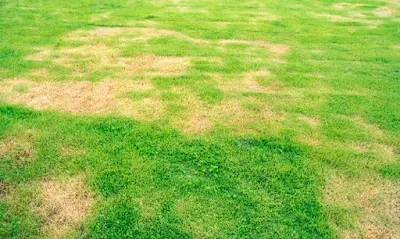Home Remedy for Lawn Fungus
The fungus can be a frequent lawn issue, though diverse kinds of fungus have distinct symptoms. Powdery mildew includes a dusty white look on grass and plants, even though "melting out" fungus kills massive regions of grass. Red thread seems as brown patches, and brown patch manifests itself as wet, brown patches surrounded by gray rings. Dollar spot fungus is generally recognized by yellow patches of dead grass. Many varieties of fungus can appear in lawns, but a number of natural home remedies can alleviate problems associated with grass fungus.
Fungicide Spray
You can also use "soapy water" both dish and laundry detergent to treat and kill fungus in your lawn.Mix 1 tbsp. baking soda, 1 tbsp. vegetable oil along with a drop of liquid dish detergent with 1 gallon of water inside a spray bottle. Shake the fungicide mixture properly and apply for the lawn each and every seven to ten days.
Mix collectively 1 cup skim milk and 9 cups water and apply using a spray bottle each other week. Use skim milk as opposed to full-fat milk to prevent foul odor as well as other diseases that can feed off milk.
Shop: BioAdvanced Fungus Control for Lawns at Amazon
The ready-to-spray applicator is easy to use. The product is absorbed by the grass and will not wash off. Any rain or watering will not impact its effectiveness.
Baking soda as organic fungicide
The effective fungicide for treatment various fungal diseases is baking soda (sodium bicarbonate). The fungal cell's ion balance is disrupt, resulting in them failure. Backing soda leaves alkaline deposits on the plants' surface, so fungal spores are removed.
Backing soda fungicide is the safest way to avoid current fungal diseases but can also be effective as preventive measure. It avoids spores that cause diseases and can avoid insects in most cases.
Cornmeal for Lawn Fungus
Horticultural cornmeal will not only help with fungal problems, but is also a source of nutrients and organic matter. Buy bigger bags of cornmeal from nearby feed retailers in case you have big lawn places to treat. If there are brown spots in your lawn, horticultural cornmeal is needed.Apply ten to 20 pounds of cornmeal per 1,000 square feet of lawn. Your lawn must show considerable modifications inside 3 weeks, and also you can reapply this remedy after a month. The cornmeal remedy operates by attracting Trichoderma fungus, which can be harmless for your lawn but kills invading fungi.
Neem oil for lawn fungus
Neem oil is an effective fungicide for the prevention and control of various fungal diseases. For home lawn use, dilute 2 oz. (4 tablespoons) in 1 gallon of water. Apply at the rate of 5 gallons spray solution per 2000 square feet.Prevention
Test your soil's pH levels. Your grass demands the best pH to be able to get nutrients and develop healthier. The incorrect pH levels make grass susceptible to diseases and unable to fight them off. Adjust pH levels by acquiring a bag of limestone out of your nearby house and garden center. Pick finely ground limestone, since it corrects the soil pH more quickly than coarse grinds.Permit the grass appropriate drainage, simply because sitting water is definitely an open invitation to fungi. Also, water your lawn early inside the morning to permit daylight to burn off added moisture.
Produce very good air circulation about plants by spacing them apart. This also aids to prevent fungus as well as other diseases from spreading plant to plant by means of leaves which are touching.
Will lawn fungus go away on its own?
Lawn fungus won’t go away on its own. Treatment may vary based on what you identify that’s growing on your lawn. Then you can pick a fungicide to inhibit and cease its growth. Practicing good turf management gives you an edge against lawn fungus and pests. Contact your lawn care expert for recommendations.Related:

